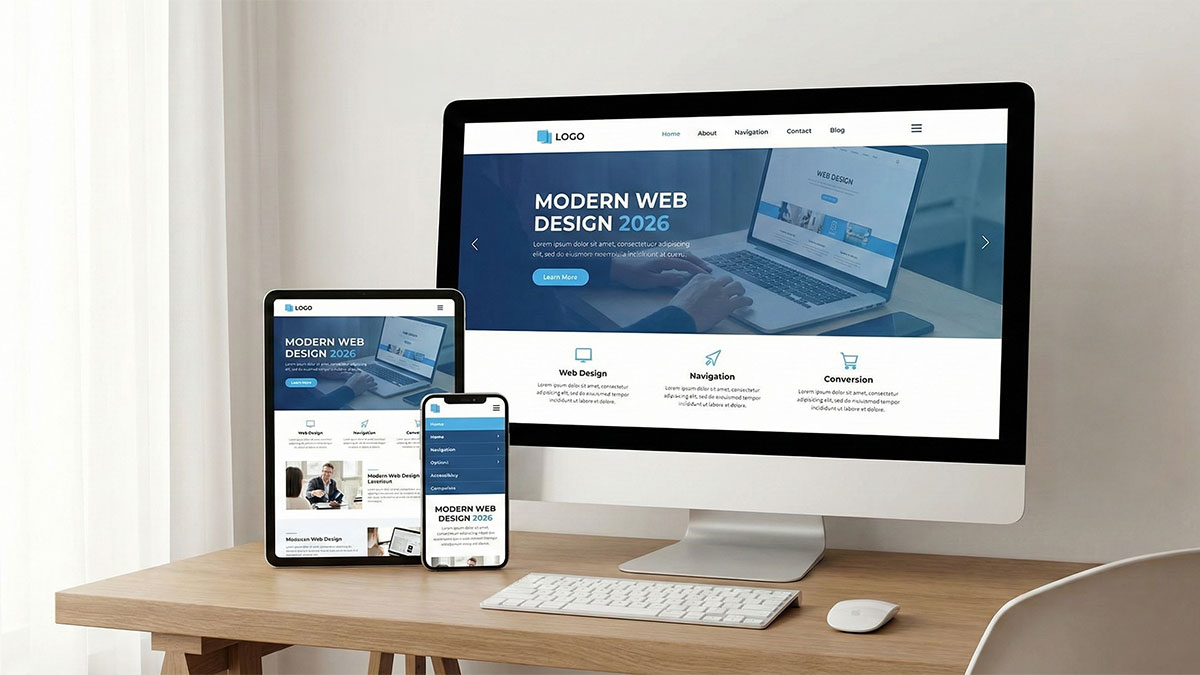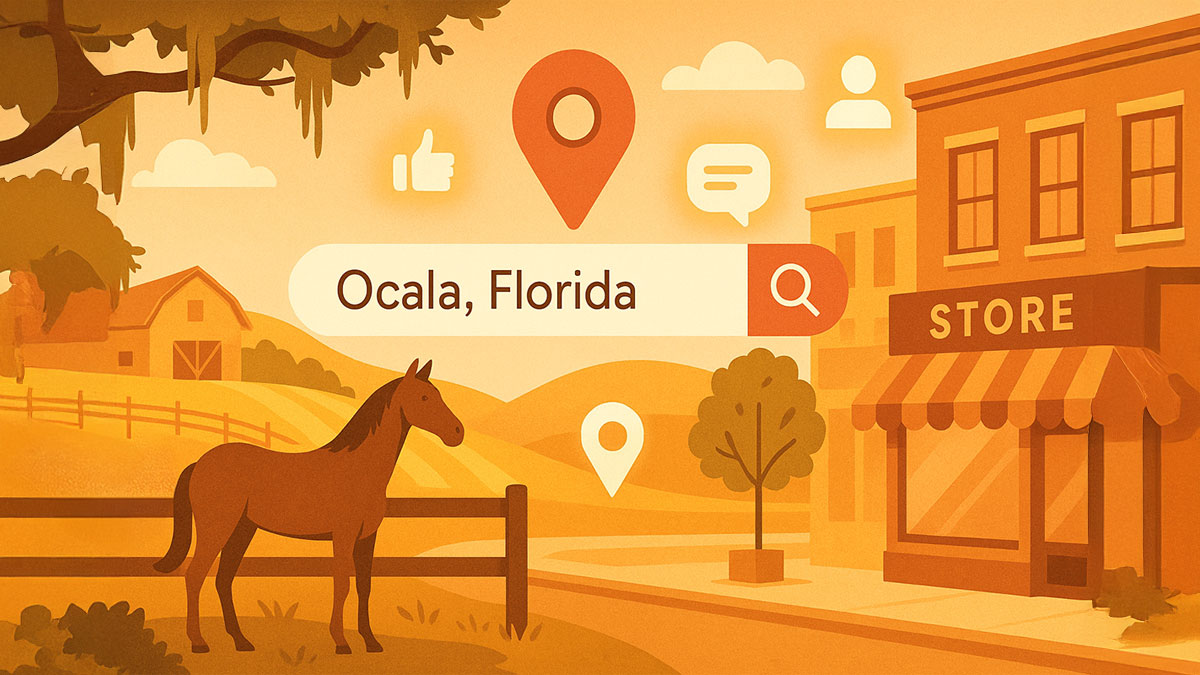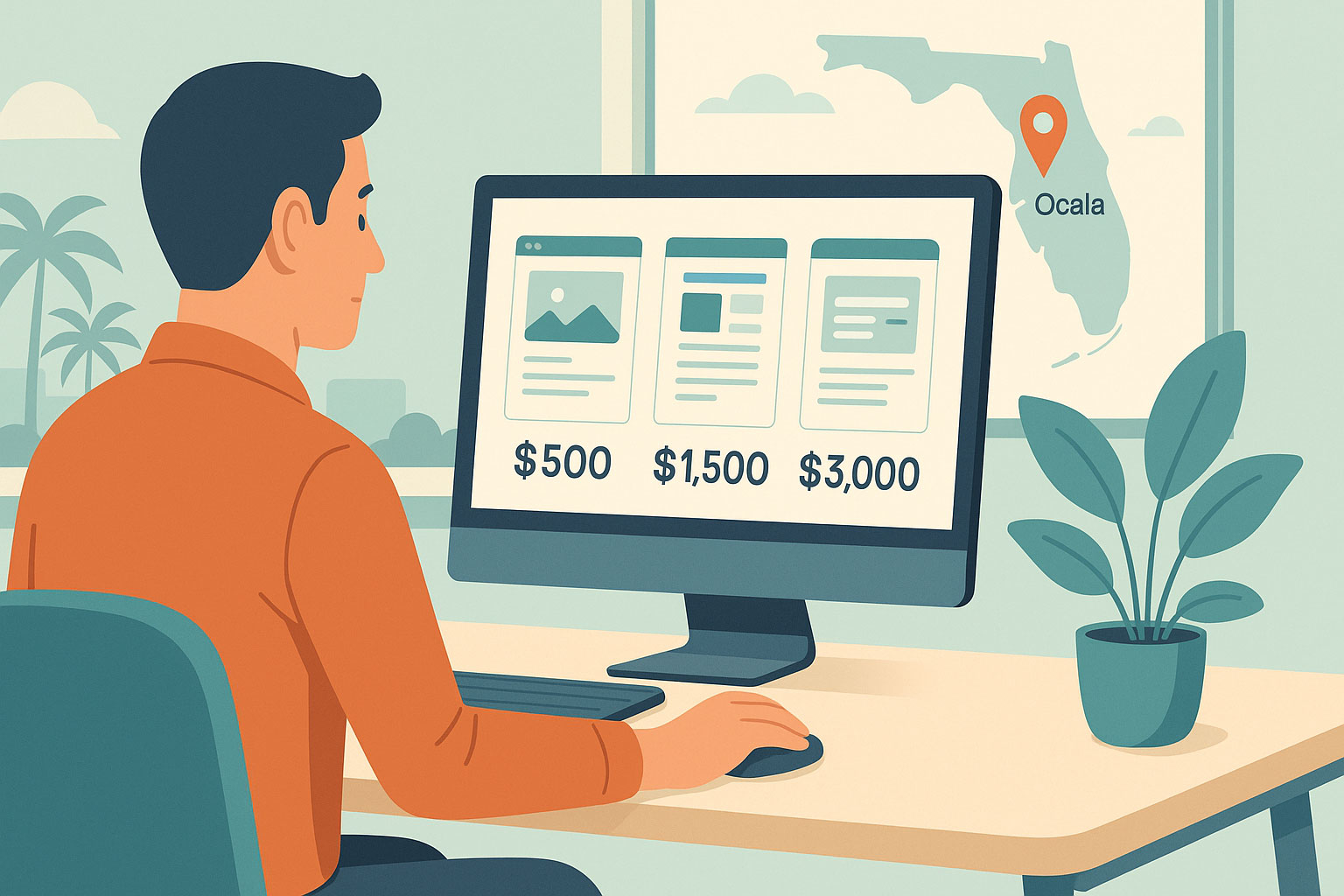DIY vs. Hiring a Professional: Affordable Web Design Options for New Businesses
Having a strong online presence is essential for any new business. Your website often serves as the first point of contact with potential customers, making it a critical component of your brand’s identity and success. However, building a website that effectively represents your business can be a daunting task, especially when you’re working with a limited budget.
As a new business owner, you’re faced with a crucial decision: should you build your website yourself using DIY tools, or should you hire a professional web designer? Both options have their advantages and drawbacks, and the best choice depends on your specific needs, goals, and resources.
This article explores the pros and cons of each approach, helping you make an informed decision that aligns with your business objectives. We’ll take a look into the benefits of DIY web design, the advantages of hiring a professional web design agency, and provide guidance on how to assess which option is right for you.
Whether you’re looking for an affordable web design solution that you can manage on your own or a more customized, professional approach, this guide will help you navigate the decision-making process.
- The Case for DIY Web Design
- The Benefits of Hiring a Professional Web Designer
- Making the Decision: DIY vs. Professional Web Design
- Conclusion
The Case for DIY Web Design
DIY web design tools have revolutionized the way new businesses create their online presence. These platforms provide an accessible entry point for startups with limited budgets and technical expertise. Popular DIY tools like Wix, Squarespace, and WordPress offer a variety of pre-designed templates, drag-and-drop interfaces, and customizable features that allow users to build a professional-looking website without needing to write a single line of code.
Wix
Known for its ease of use, Wix offers a range of templates and an intuitive drag-and-drop editor. It also provides features like e-commerce integration, SEO tools, and mobile optimization, making it a versatile option for new businesses.
Squarespace
Squarespace is celebrated for its visually appealing designs and robust e-commerce features. It’s particularly popular among creative professionals and small businesses looking for a sleek, modern website.
WordPress.com
While slightly more complex, WordPress.com offers extensive customization options through themes and plugins. It’s a powerful tool for businesses that need more control over their website’s functionality and design.
These platforms are cost-effective, with pricing tiers that cater to different levels of needs, from basic personal sites to fully functional e-commerce stores. They also offer various integrations, such as payment gateways, social media, and marketing tools, making them a comprehensive solution for new businesses.
Pros of DIY Web Design
Cost-Effective
DIY web design tools are significantly more affordable than hiring a professional designer. Monthly subscription plans range from as low as $10 to $40, depending on the platform and features selected. This affordability makes it an attractive option for startups that need to conserve cash.
Ease of Use
These platforms are designed with non-technical users in mind. Their drag-and-drop interfaces allow users to create and modify website layouts with minimal effort. For example, Wix’s AI-driven design tool can create a personalized website based on the user’s answers to a few questions, further simplifying the process.
Control and Flexibility
DIY platforms give business owners full control over their website. They can easily update content, change layouts, and add new features as their business evolves. This level of flexibility is particularly beneficial for startups that may need to pivot or rebrand as they grow.
Cons of DIY Web Design
Limited Customization
While DIY tools offer a range of templates and customization options, they often fall short in providing the level of uniqueness and functionality that a custom-built website can offer. The risk of ending up with a website that looks similar to others using the same templates is high.
Time-Consuming
Although these tools are user-friendly, the learning curve can be steep for those unfamiliar with web design principles. Building a website that looks professional and functions well can take significant time—time that new business owners might need to spend on other critical aspects of their business.
Potential for Amateurish Results
The ease of use can sometimes lead to websites that look generic or lack the polish of a professionally designed site. This can impact the brand’s credibility, particularly if the site doesn’t align with the business’s branding or if it fails to meet user experience expectations.
DIY web design tools offer a viable solution for new businesses looking to establish an online presence quickly and affordably. However, they come with limitations that may affect the long-term success and scalability of the business’s website. It’s essential for business owners to weigh these pros and cons carefully to determine if a DIY approach aligns with their overall business strategy and goals.
The Benefits of Hiring a Professional Web Designer
Hiring a professional web designer offers a level of expertise and customization that DIY tools often cannot match. Professional web design services typically encompass a wide range of tasks, including custom website creation, user experience (UX) design, search engine optimization (SEO), and ongoing website maintenance. These services are tailored to meet the specific needs of a business, ensuring that the website not only looks great but also performs optimally.
Professional web designers work closely with clients to understand their business goals, brand identity, and target audience. This collaboration results in a website that is uniquely designed to represent the business and attract the right customers. Moreover, professional web designers are equipped to handle complex functionalities, such as e-commerce systems, membership portals, and custom plugins, which can significantly enhance the user experience.
Pros of Hiring a Professional
Website Customization and Uniqueness
One of the most significant advantages of hiring a professional web designer is the ability to create a completely custom website that stands out from the competition. Unlike template-based DIY tools, professional designers can craft unique layouts, incorporate advanced features, and ensure that the site is fully aligned with the brand’s visual identity.
This level of customization can be crucial for businesses looking to make a strong first impression online.
Expertise and Quality Assurance
Professional web designers bring years of experience and technical know-how to the table. They are well-versed in the latest design trends, coding standards, and best practices for website performance. This expertise ensures that the website is not only visually appealing but also functional, responsive, and optimized for different devices and browsers. Additionally, professional designers often conduct thorough testing before the site goes live, minimizing the risk of technical issues.
SEO and Marketing Integration
SEO is a critical component of any successful website, and professional web designers often incorporate SEO best practices into the design process. This includes optimizing the site’s structure, speed, and content to improve search engine rankings. A professionally designed website is more likely to attract organic traffic, which can lead to increased visibility and sales. Furthermore, designers can integrate marketing tools such as Google Analytics, email marketing platforms, and social media, allowing businesses to track and enhance their online presence.
Cons of Hiring a Professional
Higher Upfront Costs
The primary drawback of hiring a professional web designer is the higher upfront cost compared to DIY solutions. Professional design services can range from several hundred to several thousand dollars, depending on the complexity of the project. This investment can be a barrier for startups with limited budgets, though the long-term benefits often justify the expense.
Dependence on the Designer
When a business hires a professional web designer, they often become reliant on that designer for future updates, maintenance, and troubleshooting. While this can ensure that the site remains high-quality and functional, it also means that the business may need to budget for ongoing services or retainers, especially if they lack in-house technical skills.
Timeframe
Professional web design projects typically take longer to complete than DIY sites, particularly if the website requires extensive customization or complex features. This extended timeframe can be a challenge for businesses that need to launch their website quickly. However, the investment in time often results in a more polished and effective final product.
Hiring a professional web designer provides numerous benefits, including customization, expert quality, and integrated SEO strategies. However, it also involves higher costs and a greater dependency on external support. Businesses must carefully consider their resources, goals, and timelines when deciding whether to invest in professional web design services.
Making the Decision: DIY vs. Professional Web Design
Assessing Your Needs
When deciding between a DIY web design solution and hiring a professional web design agency, the first step is to thoroughly assess your business’s specific needs and objectives. This evaluation will help you determine which approach aligns best with your goals, budget, and timeline. Here are some key factors to consider:
Web Design Budget
DIY: If your budget is tight, a DIY approach may be more appealing. As mentioned earlier, DIY platforms like Wix, Squarespace, and WordPress offer affordable plans that can fit within most startups’ budgets. However, consider the potential hidden costs, such as premium templates, plugins, and third-party integrations.
Professional: Hiring a professional web designer involves a higher upfront cost, but it’s an investment in quality and customization that can pay off in the long term. If your budget allows for it, this option might provide a better return on investment by offering a website that’s tailored to your specific needs and capable of growing with your business.
Time Constraints
DIY: If you need to launch your website quickly, DIY tools can expedite the process. These platforms are designed for rapid deployment, allowing you to get a basic site up and running in a matter of days. However, be mindful of the time required to learn the platform and design the site yourself, especially if you lack prior experience.
Professional: While a professional web designer will take longer to deliver the final product, the result is typically a polished, fully functional website that meets all your requirements. If you have the luxury of time, this option might be worth the wait.
Complexity of Design and Functionality
DIY: DIY platforms are ideal for straightforward websites with basic functionalities. If your business needs a simple online presence with a few pages of content, a DIY solution might be sufficient. However, if your website requires complex features like e-commerce, membership portals, or custom plugins, a DIY tool may fall short.
Professional: For more complex needs, hiring a professional is the better choice. A designer can create custom solutions that go beyond the limitations of DIY platforms, ensuring your website has the specific features and capabilities necessary to support your business operations.
Brand Identity and Uniqueness
DIY: While DIY platforms offer a variety of templates, they often result in websites that look similar to others using the same tools. If maintaining a unique brand identity is critical to your business, the lack of customization in DIY solutions may be a drawback.
Professional: A professional designer can create a custom website that truly reflects your brand’s personality and values. This uniqueness can be a significant advantage in differentiating your business from competitors, especially in crowded markets.
Case Studies or Examples
To further illustrate the decision-making process, consider the following case studies:
Small Retail Business
A startup retail business on a tight budget used Wix to create a simple online store. The DIY approach allowed the business to get online quickly and start selling products within days. As the business grew, however, the owner realized that the limitations of the platform were hindering further growth. The decision was made to transition to a professionally designed website, which allowed for more advanced e-commerce features and better scalability.
Tech Startup
A tech startup with a unique product and brand identity hired a professional web designer from the outset. The designer created a custom website that not only showcased the product effectively but also integrated advanced features like a user community and a customer support portal. The result was a highly functional and branded site that played a key role in the startup’s early success.
Hybrid Approach
For some businesses, a hybrid approach might be the ideal solution. This strategy involves starting with a DIY platform to establish an online presence quickly and affordably, and then transitioning to a professional design as the business grows and revenue allows for a larger investment.
Phase 1
DIY Launch: Use a DIY platform to create a basic website that meets immediate needs, such as showcasing your products or services and providing contact information.
Phase 2
Professional Website Upgrade: As your business grows and your needs become more complex, hire a professional designer to redesign the site, incorporating advanced features and custom branding elements.
This phased approach allows you to get online quickly while planning for future growth and development without overextending your initial budget.
Making the decision between DIY and professional web design ultimately depends on your business’s unique needs, budget, and long-term goals. By carefully assessing these factors, you can choose the approach that best supports your vision for your online presence. Whether you opt for a DIY solution, hire a professional, or combine both approaches, the key is to ensure your website effectively serves your business objectives.
Conclusion
Summary
In the journey of establishing an online presence for your new business, the decision between opting for a DIY web design solution and hiring a professional web designer is crucial. Each approach has its merits and challenges:
DIY Web Design offers an affordable, quick-to-launch solution, ideal for businesses with tight budgets and simple website needs. Platforms like Wix, Squarespace, and WordPress provide accessible tools that empower business owners to create and manage their own sites. However, the limitations in customization, potential time investment, and risk of amateurish results can be drawbacks for those needing a more polished and unique online presence.
Hiring a Professional Web Designer ensures a high level of customization, quality, and functionality, which can significantly enhance your brand’s online identity. Although this option requires a higher upfront investment and may involve longer project timelines, the long-term benefits, such as integrated SEO strategies and a tailored design, often justify the costs for businesses aiming for a distinctive and scalable website.
Making the Decision involves a careful assessment of your budget, time constraints, complexity of design needs, and the importance of maintaining a unique brand identity. For some businesses, a hybrid approach—starting with a DIY platform and transitioning to professional services as the business grows—might offer the best balance between cost and quality.
Final Thoughts
Your website is often the first point of contact between your business and potential customers. Whether you choose a DIY approach or hire a professional, the key is to ensure that your website effectively represents your brand and supports your business goals. A well-designed website not only enhances your credibility but also plays a critical role in driving traffic, generating leads, and converting visitors into loyal customers.
If you’re still unsure which approach is right for your business, consider reaching out for a consultation. Our team of experienced web designers can help you evaluate your options and create a strategy that fits your budget and objectives.
Visit our web design services page for more information on how we can help you build an affordable, effective online presence.


